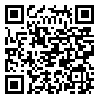دوره 5، شماره 3 - ( 5-1398 )
جلد 5 شماره 3 صفحات 166-157 |
برگشت به فهرست نسخه ها
Download citation:
BibTeX | RIS | EndNote | Medlars | ProCite | Reference Manager | RefWorks
Send citation to:



BibTeX | RIS | EndNote | Medlars | ProCite | Reference Manager | RefWorks
Send citation to:
Khakbaz Alvandian E, Farahaninia M, Masror D, Haghani H. The Knowledge, Attitudes, and Practices of Healthcare Providers About Colorectal Cancer Screening by Health Belief Model. JCCNC 2019; 5 (3) :157-166
URL: http://jccnc.iums.ac.ir/article-1-225-fa.html
URL: http://jccnc.iums.ac.ir/article-1-225-fa.html
The Knowledge, Attitudes, and Practices of Healthcare Providers About Colorectal Cancer Screening by Health Belief Model. نشریه مراقبت پرستاری مددجو محور. 1398; 5 (3) :157-166
چکیده: (3665 مشاهده)
Background: Colorectal Cancer (CRC) is a serious health problem, and its early detection is crucial for treatment and reducing mortality. Beliefs related to colorectal cancer are an affecting factor in a person’s decision about the CRC Program. The current study aimed at assessing the knowledge, attitude, and practice of healthcare providers regarding colorectal cancer screening based on the Health Belief Model (HBM) in Hamedan City, Iran, in 2018.
Methods: This was a descriptive cross-sectional study. A total of 330 healthcare workers employed in comprehensive centers of urban and rural services in Hamedan were recruited by the census method. The required data were collected by demographic characteristics form and HBM scale of CRC. To analyze the obtained data, frequency, mean, standard deviation, Independent Samples t-test, Analysis of Variance (ANOVA), linear regression, and logistic regression analyses were used in SPSS.
Results: The achieved results suggested that the mean knowledge score of the study subjects was 10.19; it was higher than that of 7.5 in the structure of HBM. The mean score of perceived sensitivity, perceived severity, perceived benefits, and perceived self-efficacy was higher than that of the perceived tool, and the barriers were less. Test performance was satisfactory in people aged >50 years (68.2%), and more than 90% of individuals recommended screening to their clients. They received the most information during training sessions.
Conclusion: Although the level of knowledge of CRC was higher than the average, more education is required for people to receive regarding HBM. On-job training classes should be more precise. Furthermore, considering the favorable performance of the sample, integrating the CRC screening program into the healthcare program has provided desirable results and could be a starting point for other programs.
Methods: This was a descriptive cross-sectional study. A total of 330 healthcare workers employed in comprehensive centers of urban and rural services in Hamedan were recruited by the census method. The required data were collected by demographic characteristics form and HBM scale of CRC. To analyze the obtained data, frequency, mean, standard deviation, Independent Samples t-test, Analysis of Variance (ANOVA), linear regression, and logistic regression analyses were used in SPSS.
Results: The achieved results suggested that the mean knowledge score of the study subjects was 10.19; it was higher than that of 7.5 in the structure of HBM. The mean score of perceived sensitivity, perceived severity, perceived benefits, and perceived self-efficacy was higher than that of the perceived tool, and the barriers were less. Test performance was satisfactory in people aged >50 years (68.2%), and more than 90% of individuals recommended screening to their clients. They received the most information during training sessions.
Conclusion: Although the level of knowledge of CRC was higher than the average, more education is required for people to receive regarding HBM. On-job training classes should be more precise. Furthermore, considering the favorable performance of the sample, integrating the CRC screening program into the healthcare program has provided desirable results and could be a starting point for other programs.
| بازنشر اطلاعات | |
 |
این مقاله تحت شرایط Creative Commons Attribution-NonCommercial 4.0 International License قابل بازنشر است. |





